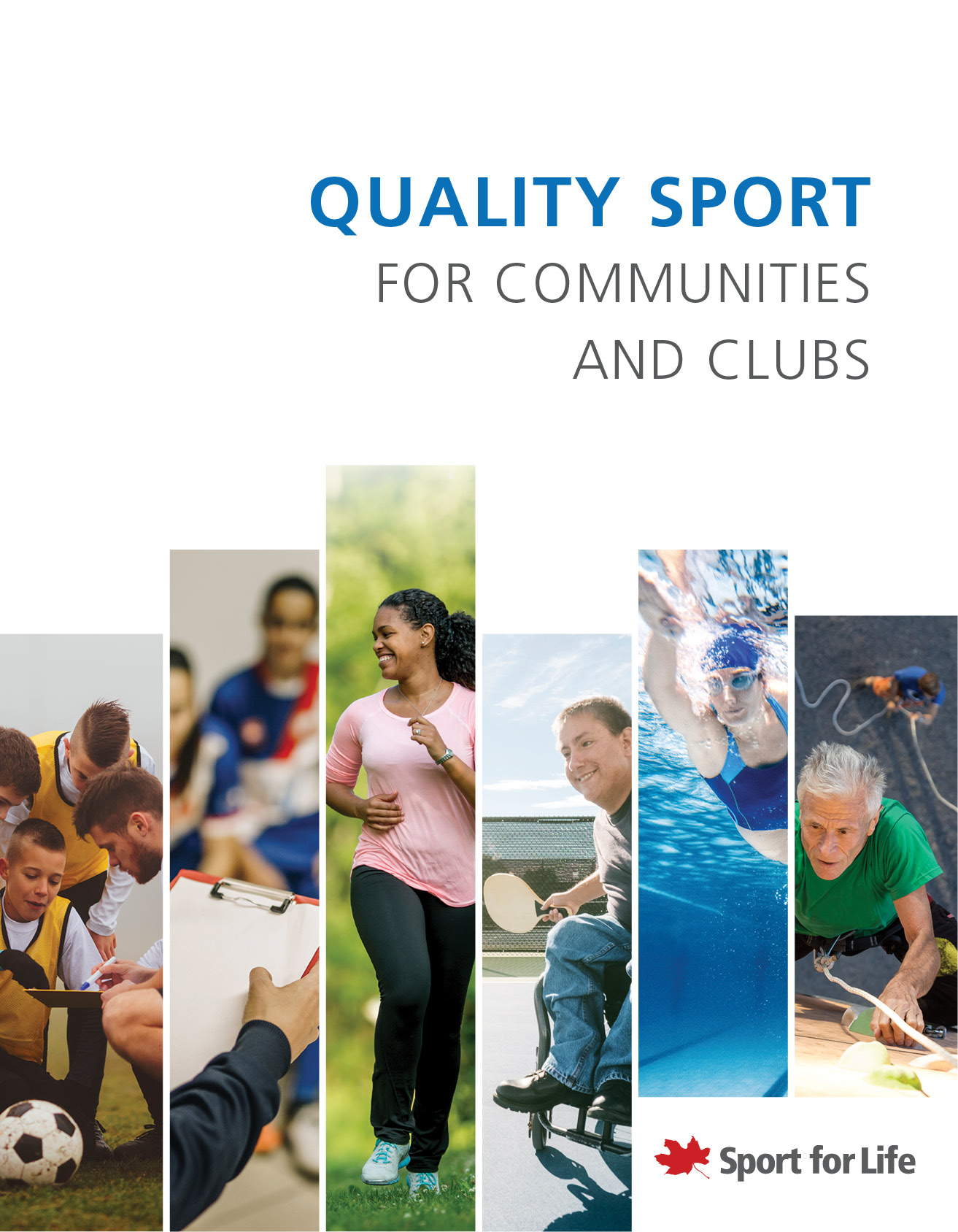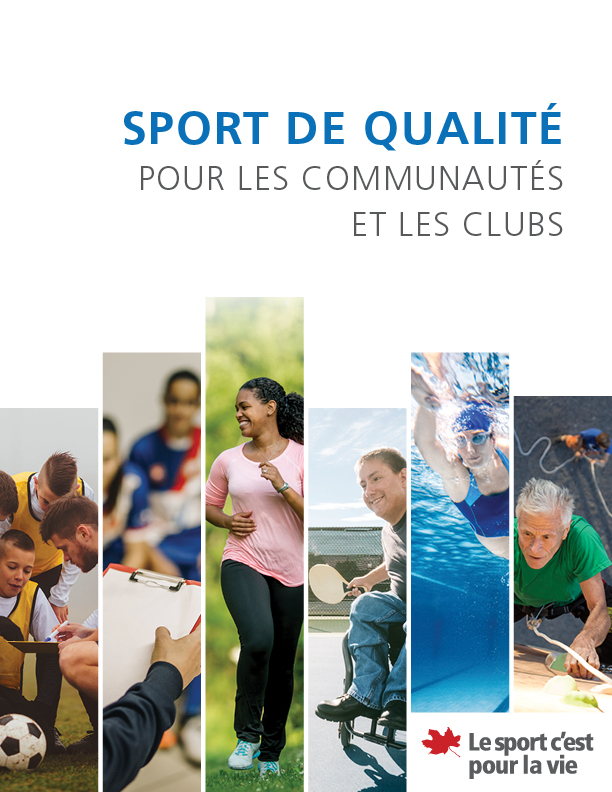The Quality Sport for Communities and Clubs tour
 The Sport for Life team completed a four-city tour of Alberta this year, mobilizing the Quality Sport for Communities and Clubs (QSCC) resource and workshop as part of a pilot project. Funded by Makadiff Sports, an Alberta-based not-for-profit organization created to encourage the growth and development of amateur sport, Richard Way and Lea Wiens visited Edmonton, Calgary, Red Deer and Lethbridge. Their goal was to connect people on the ground across sectors, and the pair was thrilled by the passionate response they were met with.
The Sport for Life team completed a four-city tour of Alberta this year, mobilizing the Quality Sport for Communities and Clubs (QSCC) resource and workshop as part of a pilot project. Funded by Makadiff Sports, an Alberta-based not-for-profit organization created to encourage the growth and development of amateur sport, Richard Way and Lea Wiens visited Edmonton, Calgary, Red Deer and Lethbridge. Their goal was to connect people on the ground across sectors, and the pair was thrilled by the passionate response they were met with.
“Many sport organizations recognize that long-term development concepts are crucial but don’t always resonate with certain parents or coaches, so this was about figuring out how to operationalize at a community level and meet them where they’re at. We were offering practical tips and examples of what they can do to mobilize quality sport without a huge change,” said Wiens.
“Community sport and recreation organizations often operate in a bubble, but there is a growing appetite for collaboration. A key focus of the workshop is partnerships, and looking outside your organization to find support and allies that can assist you with the work you’re doing.”
During the tour Wiens and Way met with a cross-section of participants from the quality sport and physical literacy ecosystem. Local and provincial sport organizations were joined by sport councils, representatives from both K to 12 and post-secondary education, and interested parties from health and recreation. Together they explored how multi-sectoral collaboration can help aid in the creation of a high performance pathway.
“The reason we created this resource is, when we started this work 15 years ago we outlined a guide for national sport organizations to create athlete development pathways and with that information we had provided into the sport ecosystem there was an expectation that people would go out and figure it out at the community level,” said Way.
“While that approach has benefits, because when local sport leaders figure it out for themselves how to implement and find solutions it’s specific to their situation, over the years we kept getting asked: ‘can you tell us what to do?”
The QSCC resource, which was created with the intellectual guidance of Dr. Paul Jurbala, is Sport for Life’s best attempt at doing exactly that. It provides a guide for how to create partnerships that will lead to the best possible sport experience for all Canadians, laying out step by step how to achieve quality sport ideals. It is broken down into five key actions organizations can take.
“Dr. Jurbala was really instrumental in creating a lot of this content because this was the topic of his thesis to receive his doctoral degree. The challenge was to take that content and translate it into simple messaging so we could create community action. Concurrently we were working with many many sport organizations on a checklist around what needs to be done to activate on a community level,” said Way.
“After consultation with over 100 individuals we had our checklist, and the resource is really designed to support it. We present it in a general way but invite people to look at it through their lens and modify the language to make it specific to their sport. It’s still a living piece, and it’s structured as a guide to create dialogue. The way it should be used is a director or a board can open up the document and say ‘okay, we’re going to put one of the five items on the agenda for the next meeting and see how we can improve as a club’.”
Both Wiens and Way were floored by the engagement they received from the QSCC workshops, where introductions were being made between sectors and real plans were being mobilized for quality sport in their communities.
“Hands down, this has been the most exciting project I’ve worked on with Sport for Life. We’re a conduit to a higher level of quality sport, and this workshop has been able to meet community recreation and sport providers where they are with practical ideas that can be implemented easily,” said Wiens.
“This is more than just a workshop. It’s a catalyst for change. Many of the workshop participants have reported strengthened relationships, enhanced commitment to parent and coach education, along with many other innovative projects as a result of attending the workshop. As sports and community recreation providers face uncertain futures in the post-COVID world, the QSCC resource and workshop can be a valuable tool to help them keep their bearings.”
For more information about how to bring Quality Sport for Communities and Clubs to your community, contact Lea Wiens: lea@sportforlife.ca.

